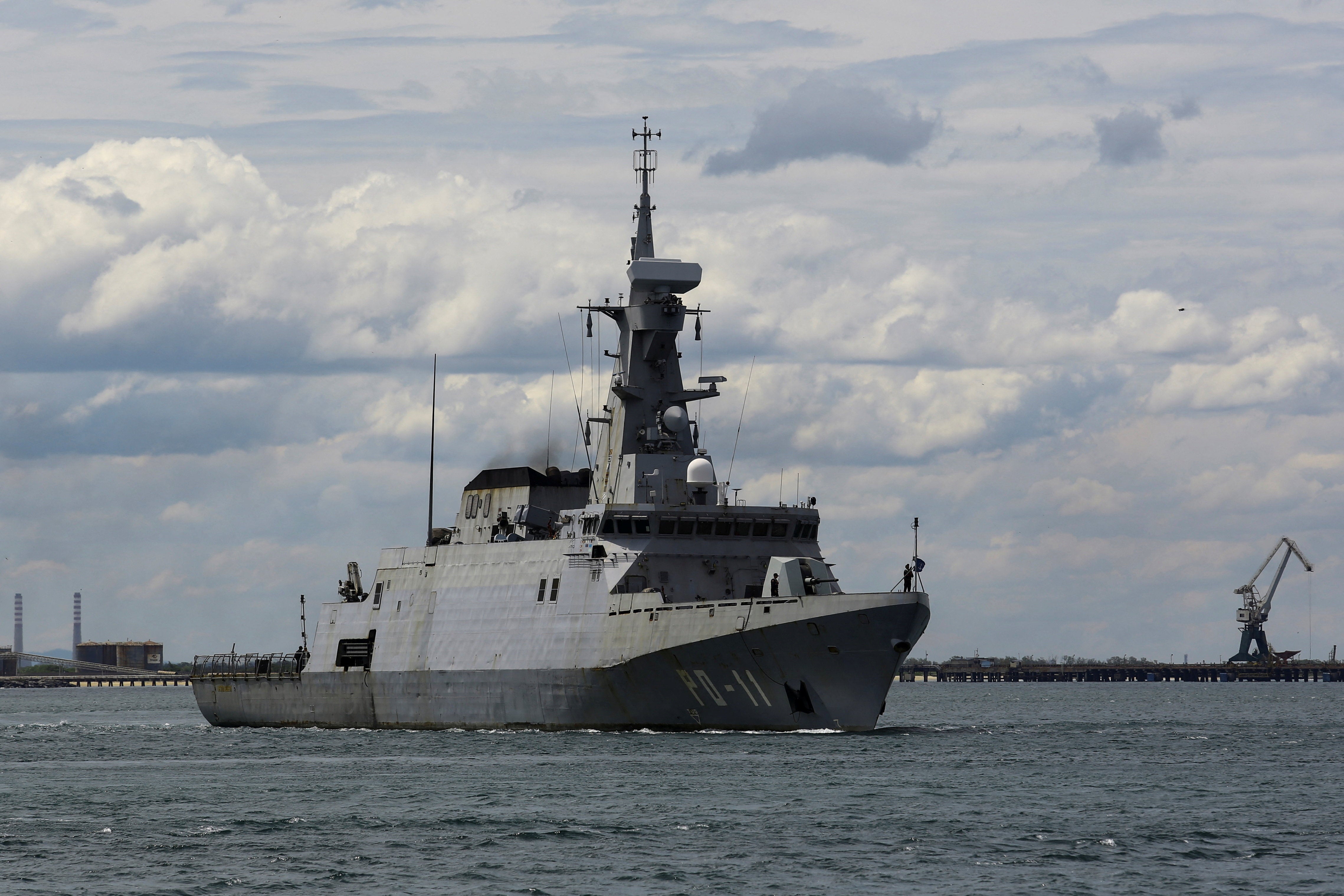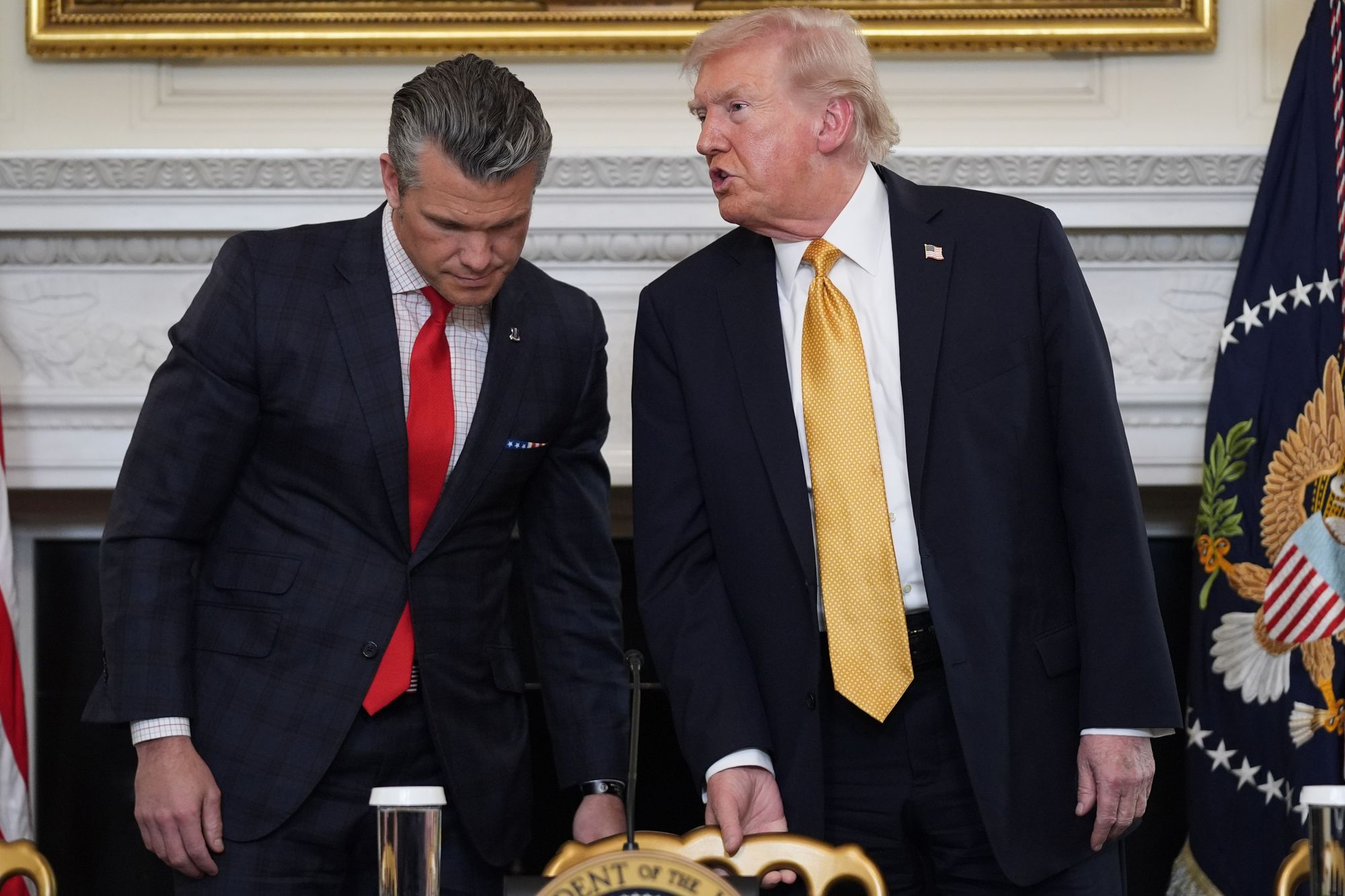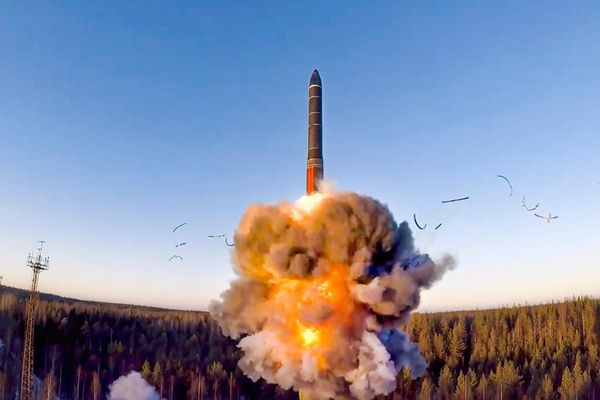After deploying the Navy’s most advanced aircraft carrier strike group to the Caribbean, Donald Trump’s administration is reportedly mulling a military operation inside Venezuela to take out cocaine facilities and routes used by drug traffickers, marking yet another escalation of a brewing war with cartels in South America.
The administration is considering several operations and has not ruled out alternate diplomatic options in the president’s campaign, according to CNN, citing U.S. officials.
Trump is also “not in a rush” to make a decision to strike Venezuela while his focus is on a trip to Asia and negotiations with Russia and Ukraine on ending their war, CNN reported.
But potential plans for attacking the country — an operation that could spill over into a regional war — follows a growing buildup of military forces in the region and a series of lethal strikes on alleged drug boats that have killed more than 40 people within the last month.
Asked on Thursday why he won’t seek permission from Congress for a military campaign taking aim at South American regimes he claims are fueling a drug epidemic in the United States, Trump said his government is “just going to kill people” instead.
“I don’t think we're going to necessarily ask for a declaration of war. I think we’re just going to kill people that are bringing drugs into our country, OK? We’re going to kill them,” Trump said during a White House roundtable with administration officials Thursday.
“They’re going to be, like, dead, OK,” he said.
The Independent has requested comment from the White House.
In a statement to The Independent, Pentagon press secretary Kingsley Wilson said defense officials have briefed “the appropriate committees of jurisdiction numerous times throughout the operations targeting narco-terrorists, and will continue to do so.”
On Friday, Defense Secretary Pete Hegseth ordered the USS Gerald R. Ford aircraft carrier — the world’s largest — and its accompanying strike group to a command area that encompasses the Caribbean and South American waters.
The “enhanced force presence” of the massive aircraft carrier and its escort ships would “bolster U.S. capacity to detect, monitor, and disrupt illicit actors and activities that compromise the safety and prosperity of the United States homeland and our security in the Western Hemisphere,” according to chief Pentagon spokesperson Sean Parnell.
“These forces will enhance and augment existing capabilities to disrupt narcotics trafficking and degrade and dismantle [transnational criminal organizations],” he added.
Flight-tracking data this week also showed a B-1B bomber operating over the Caribbean near Venezuela’s coast, which Trump denied.

Venezuela is not a major cocaine-producing country, according to the United Nations Office on Drugs and Crime (UNODC).
Virtually all coca crops are inside Bolivia, Peru and Colombia, and the Drug Enforcement Administration under Trump did not mention Venezuela in a March report on the state of cocaine trafficking.
Still, the Trump administration has sought to link Maduro’s regime to the drug trade, as well as the gang Tren de Aragua, despite reports from intelligence agencies that have denied ties between the group and Maduro’s government.
Last week, Trump said he authorized the CIA to perform covert operations inside Venezuela, claiming that Maduro’s government “emptied their prisons into the United States of America” and flooded the country with drugs.
He said that the time that the U.S. was “looking at land” strikes in the country.
Last month, the administration declared that the United States is formally engaged in an “armed conflict” with drug cartels that the president has labeled “unlawful combatants,” according to a confidential notice to members of Congress.
The notice claims cartels are “nonstate armed groups” whose actions “constitute an armed attack against the United States” and are now engaged in a “noninternational armed conflict” — or war with a non-state actor.

Critics have argued the Trump administration’s air campaign against alleged smugglers amounts to illegal extrajudicial killings, while members of Congress and civil rights groups are pressing the administration for evidence to justify the attacks.
Thus far, the administration has been unwilling to share any of the intelligence used to select the boats that have been targeted or the legal rationale behind the strikes. And while the administration continues to describe those killed as “terrorists,” two who survived a recent strike in the Caribbean were repatriated to their home countries rather than detained.
Maduro appealed for peace Thursday, delivering a plea in both English and Spanish to prevent a “crazy war” in the region.
Earlier this month, Venezuelan Defense Minister Vladimir Padrino Lopez accused the Trump administration of trying to “force a regime change” in the country.
“I want to warn the population: we have to prepare ourselves because the irrationality with which the U.S. empire operates is not normal,” Padrino said in televised remarks. “It’s anti-political, anti-human, warmongering, rude and vulgar.”
Trump’s $300 million ballroom likely to bear a familiar name - his own, report says
More anti-abortion pregnancy centers offer medical services as Planned Parenthood clinics close
The new shepherds of Spain: African migrants take up a neglected rural trade
Trump wants a new ‘golden fleet’ of Navy ships to combat threat from China: report
Longest serving delegate Eleanor Holmes Norton, 88, scammed out of thousands - police
Trump admin is ‘funneling $10B through the Navy’ to ramp up ICE detention facilities







